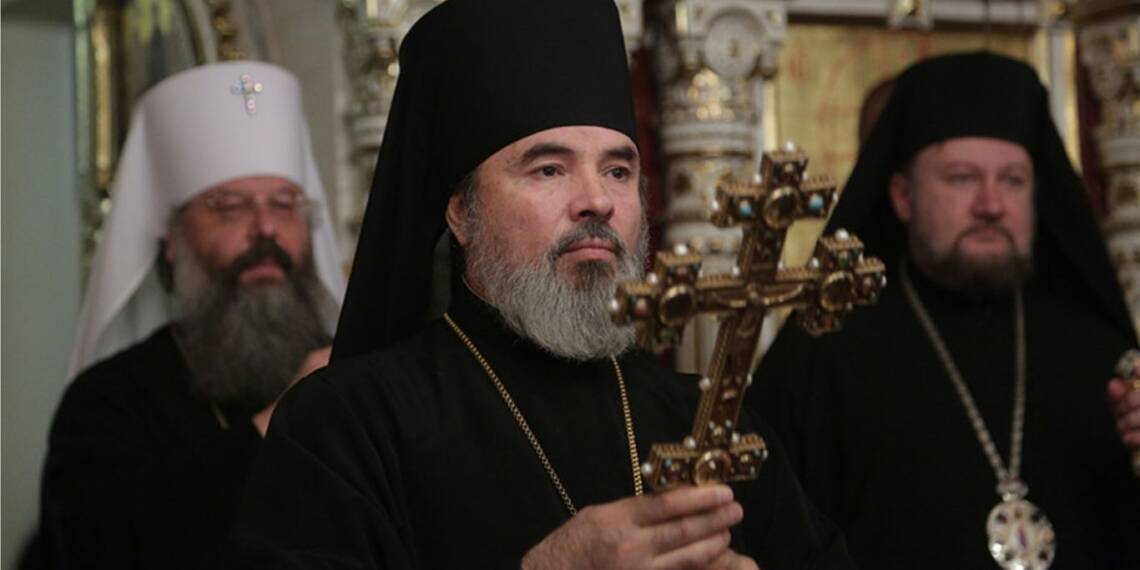In Moldova, a new controversy is making headlines during the Holy Week. The country’s opposition parties have accused the pro-European Union government of trying to intimidate the Moldovan Orthodox Church. This follows an incident where a senior bishop was blocked from travelling to abroad for an important Easter ceremony.
Bishop Marchel of Balti and Falesti, a well-known figure in the Moldovan Orthodox Church, was stopped twice at the airport by border police. He was planning to travel to Jerusalem to take part in the Holy Fire ritual. This sacred event is held every year at the Church of the Holy Sepulchre on Holy Saturday.
The bishop was first stopped on Thursday at Chisinau Airport. He said the police searched and questioned him. His passport was returned only after his flight had already left. When he tried to travel again on Friday, the same thing happened. Marchel called the actions of the police “unjustified” and accused the authorities of lying.
The Border Police, however, told a different story. They claimed that the bishop was late for his flight and that the checks were part of normal security procedures. They did not explain why he was stopped a second time on Friday.
The incident sparked strong reactions from opposition politicians. The Pobeda – Victorie Bloc, a coalition of opposition parties, said the government was waging a pressure campaign against the Church. In a statement, the bloc said Orthodox worshippers were seeing “police, barricades, and intimidation” instead of peace and prayer during Holy Week.
The Party of Socialists (PSRM) also joined in. They called the situation “a deliberate act of spiritual terror.” PSRM leaders demanded the government give clear answers and stop what they see as attacks on the Church.
Marina Tauber, an opposition MP and a leader of the Pobeda – Victorie Bloc, called the bishop’s treatment “outrageous.” She accused Moldova’s President Maia Sandu of pressuring the Russian-linked Moldovan Orthodox Church. Tauber said the European Union was ignoring the situation and remaining silent despite Moldova’s government pushing for closer ties with Brussels.
Former President Igor Dodon also weighed in. He described the incident as an “act of terror against our Orthodox faith.” He suggested the government’s actions were revenge against Bishop Marchel, who has openly criticized Sandu in the past.
Moldova is a deeply religious country. The majority of Orthodox Christians follow the Moldovan Orthodox Church, which is linked to the Russian Orthodox Church. A smaller number belong to the Metropolis of Bessarabia, which is connected to the Romanian Orthodox Church. Church leaders have long warned about growing tensions between the state and religious institutions.
Speaking to RT, Bishop Marchel called the whole situation “the work of the Evil One.” He urged believers to remain calm and show Christian forgiveness. He also suggested that Moldova was being used as a “test bed” for attacks against Orthodox Christianity. He warned that the situation could spread to other countries if not stopped.
Despite the trouble, the bishop said the Easter celebration would go on. Other clerics had already managed to travel to Jerusalem and would bring back the Holy Fire to Moldova.
The Moldovan government has not yet offered a full explanation of the incident. The religious attacks on pro-EU governments have increased in Europe, especially on the Russian Orthodox Christians.
Previously, Estonia’s parliament has passed a law that may compel the Estonian Christian Orthodox Church (ECOC) to break its longstanding ties with Russia. Notably, the Estonian Christian Orthodox Church is canonically connected to the Russian Orthodox Church (ROC).








